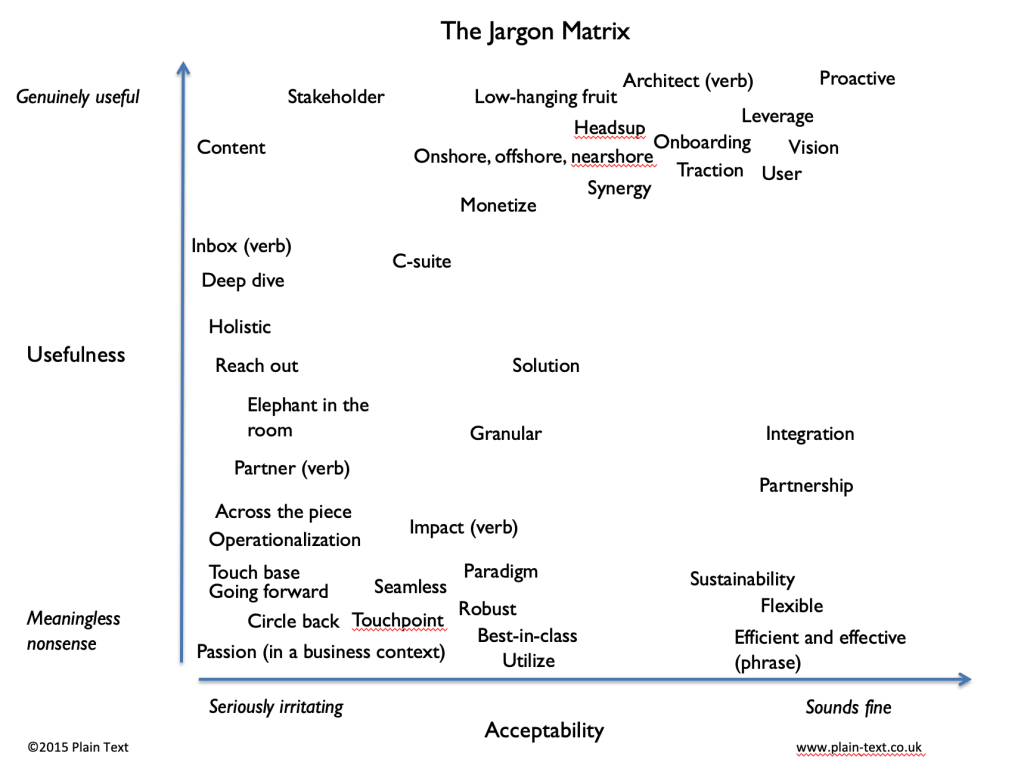My brother-in-law, a mechanical engineer, once shared with me a sentence with which his manager portentously opened a meeting: “Before we push the boat out, we’ve got to get into bed with the beast”. I fell about laughing when I heard this. But everyone in the room had apparently understood what the boss was talking about: the need for everyone to familiarise themselves with a particular large piece of machinery before starting a project.
Jargon (“the terminology of a profession”) causes problems when it percolates outside the group that readily understands it. Since the 1980s, business has had an ever-higher public profile and its special language has spread further and further into the public domain, spawning endless buzzword websites and generators, snarky articles and annual jargon competitions.
Of course some jargon sounds ridiculous. Does anyone really want to “circle back” with anyone else? But jargon can also serve as useful shorthand. For example while it may still offend certain ears, “monetise” is a lot easier to write and say than “derive commercial value from”. Because it’s genuinely useful, some business jargon has made the leap into the everyday lexicon. “Proactive” (“tending actively to instigate changes in anticipation of future developments, as opposed to merely reacting to events as they occur”) was reviled in the 1990s but seems acceptable today – and has surely saved several forests’ worth of paper.
Language is fluid. And what was once seen as jargon can become part of the mix – if it’s worthy.
Bearing this in mind, we thought it would be fun to plot it on a chart to illustrate the degree to which different business jargon is acceptable and useful.
Entirely opinionated and subjective it may be, but the Jargon Matrix is based on 14 years of total immersion in the world of business copywriting.

It suggests, for example, that while “efficient and effective” sounds fine, it is meaningless nonsense. “Passion” in a business context is both meaningless and irritating. “Content” is genuinely useful but seriously irritating; and “proactive”, our star jargon term, is both useful and OK.
(Postscript: the Jargon Matrix has evolved since it was first created – but it’s surprising how in 2022, so little seems to have changed…)